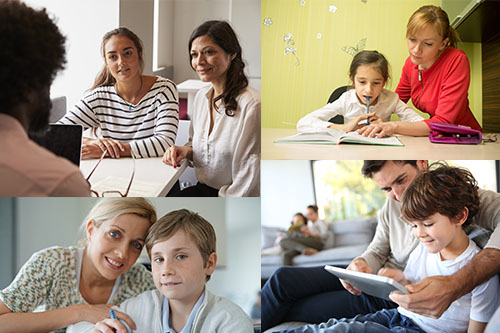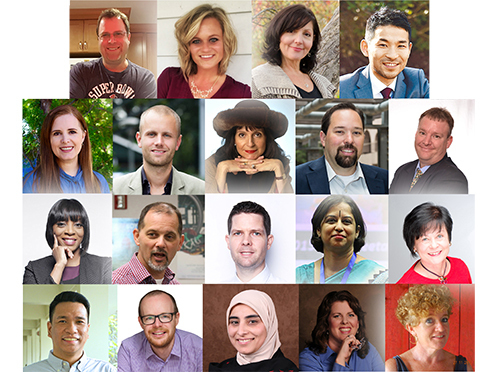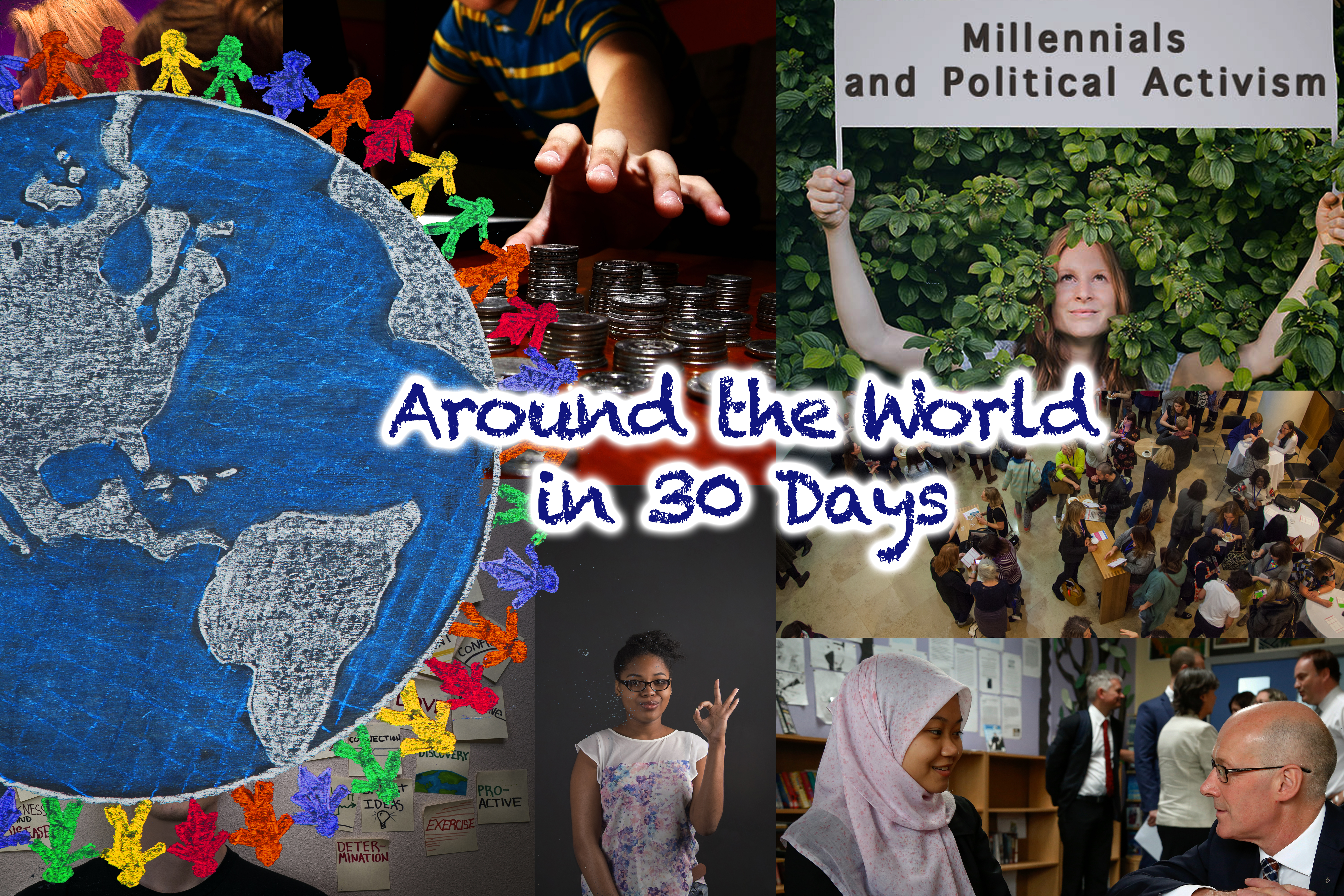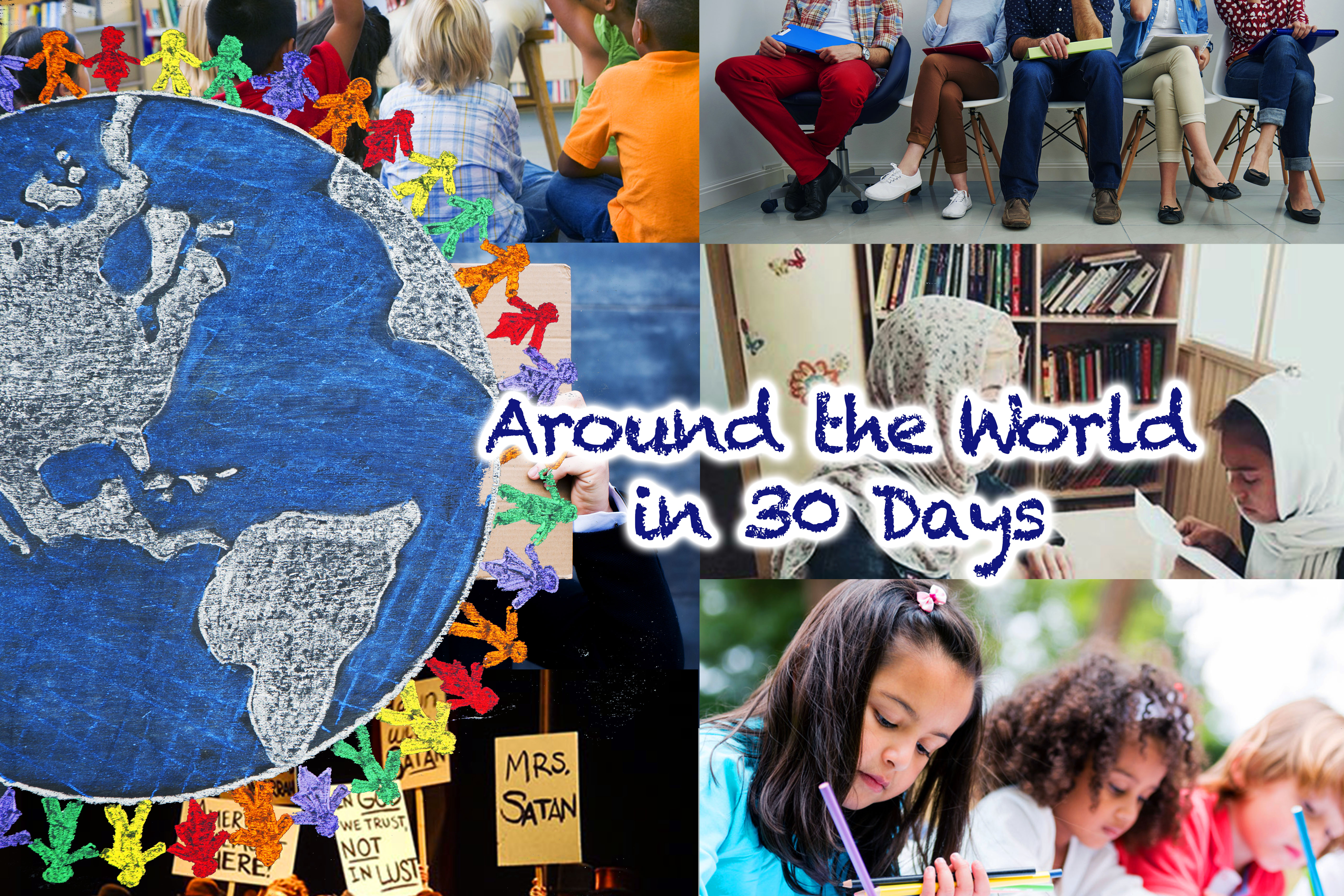In a technology driven, infinitely connected world, the roles of teachers and parents in the learning process are changing. Good communication is arguably more important than ever before. A teacher parent relationship that’s in sync is the best way to create a positive experience and learning environment for each student. So how do teachers around the world manage these relationships, and specifically what are their top tips for parents? Our vastly experienced and acclaimed global teachers have much wisdom to share.
“I became a teacher by accident,” writes Eliza Guerra Cruz (@ElisaGuerraCruz) in Mexico. “When Leo, my first child, was born, my journey as an educator began. I wanted to teach my baby about the everyday miracles of nature, the poetry of simple words, the exhilaration of music… and instill in him a lifelong love of learning.” Read More.
“The pace of world change is increasing and over the next 15 years, we will challenge most known conventions about work and opportunity,” writes Richard Wells (@EduWells) in New Zealand. “The key is to keep young people challenged and having to learn and adapt collaboratively with anyone around them.” Read More.
“While most parents agree that reading is important in all areas of life, how to foster a love of reading and support their young readers remains a mystery,” writes Shaelynn Farnsworth (@shfarnsworth). Shaelynn shares 10 ways parents can support their young readers. Read More.
“Parents, here are a few points I try to cover during the course of the year,” writes Joe Fatheree (@josephfatheree). “Dream big, failure is part of success, learning is fun, one person can change the world. It takes time and a concentrated effort from both parents and teachers to create a culture where those skills can grow.” Read More.
Maarit Rossi (@pathstomath) recommends the perspectives of Kirsti Savikko, Headteacher in Kahari School, Turku, Finland. Kirsti’s ten parent rules include: don’t believe everything your child tells you, respect your child and treasure your free time! Read More.
“The Netflix phenomenon, “13 Reasons Why,” based on the Jay Asher novel of the same name, has captivated the teens of the nation. There are countries banning it and others applauding it,” writes Carl Hooker (@mrhooker). “The fervor around this show does highlight a larger issue when it comes to modern media and our kids…. we parents don’t understand it and as a result, don’t want to talk to them about it.” Here are Carl’s 13 reasons why you should “talk tech” with your kids. Read More.
“When it comes to fostering a life-long love of learning, parents are the biggest support for their children,” writes Pauline Hawkins (@PaulineDHawkins). Pauline’s top tips for parents include teaching kids to respect all people and teaching them to stand up for themselves and others. Read More.
Vicki Davis (@coolcatteacher) writes, “Parents, I don’t know everything. But as your child’s teacher and as a person who has been teaching children for more than fifteen years now, there are some things I would love to tell you. I’m glad to teach your child, I’m a learner too, we teach more with our lives than with our lips, let’s work together for your child’s good.” Read More.
“Teachers are educated professionals who work with children every day,” writes Craig Kemp (@mrkempnz) in Singapore. “I will often see your child in a different light than you do. If I give you advice, don’t fight it. Take it, and use it in the same way you would consider advice from a doctor or lawyer.” Read More.
School technology integration specialist Adam Steiner (@steineredtech) shares 10 things parents should know about tech and kids, including those important conversations about cyberbullying, setting guidelines about screentime, and how kids can support their parents’ digital literacy! Read More.
Most teachers, notes Jim Tuscano (@jimtuscano), have “encountered the fury of the tiger mom, the non-stop calls of the helicopter father, the unfair demand of the snowflake mother, and well, the absence of the ghost dad.” Jim conducted a survey in his teacher network and shares the top things teachers would like to tell parents, including “praise your children in times of success” and “my classroom is open for visits”. Read More.
“I hope my words will express my good feelings for your child, my child,” writes Rashmi Kathuria (@rashkath). The Top 10 things Rashmi wants to tell all parents include being a good role model, the importance of family time, and never ever comparing. Read More.
The Global Teacher Bloggers are pioneers and innovators in fields such as technology integration, mathematics coaching, special needs education, science instruction, and gender equity. They have founded schools, written curricula, and led classrooms in 16 different countries that stretch across every populated continent on earth. The Top Global Teacher Bloggers is a monthly series where educators across the globe offer experienced yet unique takes on today’s most important topics. CMRubinWorld utilizes the platform to propagate the voices of the most indispensable people of our learning institutions – teachers.
Photo is courtesy of CMRubinWorld)
Top Row L to R: Adam Steiner, Shaelynn Fransworth, Pauline Hawkins, Kazuya Takahashi
2nd Row L to R: Elisa Guerra, Jasper Rijpma , C.M. Rubin, Carl Hooker, Warren Sparrow
3rd Row L to R: Nadia Lopez, Joe Fatheree, Craig Kemp, Rashmi Kathuria, Maarit Rossi
Bottom Row L to R: Jim Tuscano, Richard Wells, Abeer Qunaibi, Vicki Davis, Miriam Mason-Sesay
Join me and globally renowned thought leaders including Sir Michael Barber (UK), Dr. Michael Block (U.S.), Dr. Leon Botstein (U.S.), Professor Clay Christensen (U.S.), Dr. Linda Darling-Hammond (U.S.), Dr. MadhavChavan (India), Professor Michael Fullan (Canada), Professor Howard Gardner (U.S.), Professor Andy Hargreaves (U.S.), Professor Yvonne Hellman (The Netherlands), Professor Kristin Helstad (Norway), Jean Hendrickson (U.S.), Professor Rose Hipkins (New Zealand), Professor Cornelia Hoogland (Canada), Honourable Jeff Johnson (Canada), Mme. Chantal Kaufmann (Belgium), Dr. EijaKauppinen (Finland), State Secretary TapioKosunen (Finland), Professor Dominique Lafontaine (Belgium), Professor Hugh Lauder (UK), Lord Ken Macdonald (UK), Professor Geoff Masters (Australia), Professor Barry McGaw (Australia), Shiv Nadar (India), Professor R. Natarajan (India), Dr. Pak Tee Ng (Singapore), Dr. Denise Pope (US), Sridhar Rajagopalan (India), Dr. Diane Ravitch (U.S.), Richard Wilson Riley (U.S.), Sir Ken Robinson (UK), Professor Pasi Sahlberg (Finland), Professor Manabu Sato (Japan), Andreas Schleicher (PISA, OECD), Dr. Anthony Seldon (UK), Dr. David Shaffer (U.S.), Dr. Kirsten Sivesind (Norway), Chancellor Stephen Spahn (U.S.), Yves Theze (LyceeFrancais U.S.), Professor Charles Ungerleider (Canada), Professor Tony Wagner (U.S.), Sir David Watson (UK), Professor Dylan Wiliam (UK), Dr. Mark Wormald (UK), Professor Theo Wubbels (The Netherlands), Professor Michael Young (UK), and Professor Minxuan Zhang (China) as they explore the big picture education questions that all nations face today.
The Global Search for Education Community Page
C. M. Rubin is the author of two widely read online series for which she received a 2011 Upton Sinclair award, “The Global Search for Education” and “How Will We Read?” She is also the author of three bestselling books, including The Real Alice in Wonderland, is the publisher of CMRubinWorld, and is a Disruptor Foundation Fellow.
Follow C. M. Rubin on Twitter: www.twitter.com/@cmrubinworld








Recent Comments